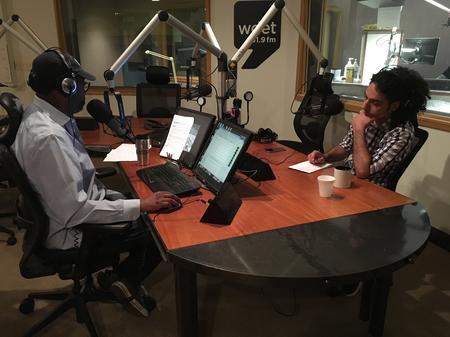Perception and Reality in Jerusalem and the Gaza Strip
Jewish and Arab Americans discuss recent violence in Israel


The contrast between Monday’s events in Jerusalem and on the Gaza Strip border was stark.
In Jerusalem, there was celebration and there were smiles as American and Israeli officials marked the official relocation of the U.S. embassy from Tel Aviv to Jerusalem on the 70th anniversary of the formation of Israel.
At the same time, thousands of Palestinians erupted in protest on the Gaza border. Dozens of those protesters are now dead and about 3,000 more are wounded after Israeli soldiers fired shots upon the crowds.
The New York Times reported Monday was the bloodiest single day since a series of protests began to oppose Israel’s economic blockade of Gaza.
Are we now in a new era in Israeli-Palestinian relations? Has America permanently given up its role as a mediator in peace talks? And have the dynamics fundamentally changed both in Israel and across the Middle East?
Detroit Today host Stephen Henderson is joined by Howard Lupovitch, associate professor of history and director of the Cohn-Haddow Center for Judaic Studies at Wayne State University, Ali Harb, a Dearborn-based Arab-American journalist.
Lupovitch says moving the U.S. embassy fits neatly into Trump’s style of politics.
“This is more about showmanship than diplomacy,” he says.
Images surfaced on Monday of protesters who were bloodied and unconscious, surrounded by a field of black smoke, women and children who were exposed to tear gas. Harb says the scene presented a stark juxtaposition with the embassy ceremony.
“While all the violence was unfolding in Gaza, Jared Kuschner said that when peace is achieved years from now, I quote, ‘People… will say that the journey to peace started with a strong America recognizing the truth’, talking about the embassy move. And I don’t he can look at all this violence and think of peace starting from it.”
But Lupovitch says there are many Israelis who are also afraid of being victims of violence by Hamas.
Harb says that feeling is unfounded.
“A characteristic of a bully is he believes he’s a victim,” says Harb. “But who’s occupying who?”
“This fear [many Israelis have] is genuine,” says Lupovitch. “It’s more complicated than saying it’s an all-or-nothing approach. There is a tapestry of points of view and they all have to be taken into account.”
To hear more from the conversation, click on the audio player above.
